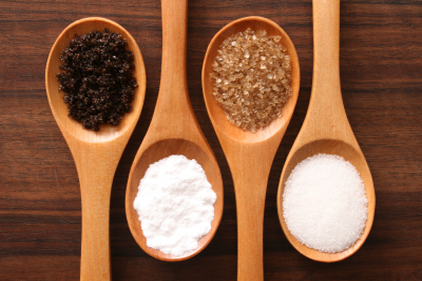About 13% of adults' daily calories come from added sugars in things like cake and regular soda, according to government statistics. Men consume about 335 calories a day from added sugars; women, 239 calories. These are sugars added to processed and prepared foods but not sugar added at the table.
About two-thirds (67%) of added sugars come from food; the other third (33%) from beverages.
"These results may underestimate the actual sugar intake because people may add sugar to cereal in the morning and to beverages such as coffee and tea," says the study's lead author Bethene Ervin, a nutritional epidemiologist with the National Center for Health Statistics, part of the Centers for Disease Control and Prevention.
A similar study by Ervin and colleagues, out last year, showed that kids and teens are downing about 16% of their daily calories (322 calories) from added sugars. Boys consume 362 calories a day from them; girls, 282 calories.
On the plus side, an analysis of CDC data by other scientists shows that added sugar intake has declined in people, ages 2 and older, from about 18% of total calories in 1999-2000 to 14.6% of total calories in 2007-2008, Ervin says. That is mostly because of a decrease in regular soda, which is the single biggest contributor of added sugars to the diet for all age groups, she says.
The current intake of added sugars is far more than the amount recommended by the American Heart Association. The group advises that men consume no more than 150 calories a day from added sugars, or about nine teaspoons. For women, it is no more than 100 calories a day, or about six teaspoons of added sugars.
The heart association says that research has linked a high intake of added sugars to many poor health conditions, including obesity, high blood pressure, type 2 diabetes and other risk factors for heart disease and stroke.
"Most of us don't have room in our diets for this many calories from added sugars," says Rachel Johnson, a spokeswoman for the heart association and a nutrition professor at the University of Vermont. "There is a small glimmer of hope that added sugar consumption is declining modestly due to the reduction in full-calorie soft drinks, but the amount people are consuming is still substantially higher than it should be."
The latest findings are from the National Health and Nutrition Examination Survey, which is considered the gold standard for evaluating food and beverage habits because the data come from in-person interviews about dietary habits. These results are from interviews with about 15,700 adults, ages 20 and older, conducted from 2005 to 2010.
Added sugars include white sugar, brown sugar, high-fructose corn syrup, maple syrup, honey, molasses and other caloric sweeteners.
Added sugars include all sugars used as ingredients in prepared and processed foods and beverages, such as cakes, candy, cookies, muffins, jams, chocolates, ice cream, sodas, fruit drinks, sports drinks, energy drinks, coffee, tea, flavored milk and alcoholic beverages.
Other findings:
-- The percentage of total calories from added sugars decreases with age. Men and women ages 20-39 consume the most calories from added sugars, 397 and 275 respectively.
-- Black men and women consume about 15% of their daily calories from added sugars compared with 13% of whites and Mexican-Americans.
-- People with the lowest incomes consumed about 15% of their daily calories from added sugars compared with those at the highest incomes, who consumed about 11.5%.
-- About two-thirds (67%) of the added sugars from foods were consumed at home. That is consistent with the fact that two-thirds of total calories were consumed at home.
